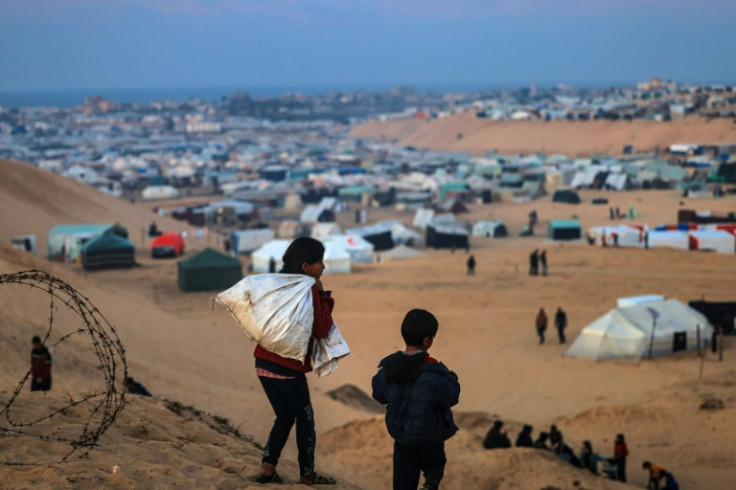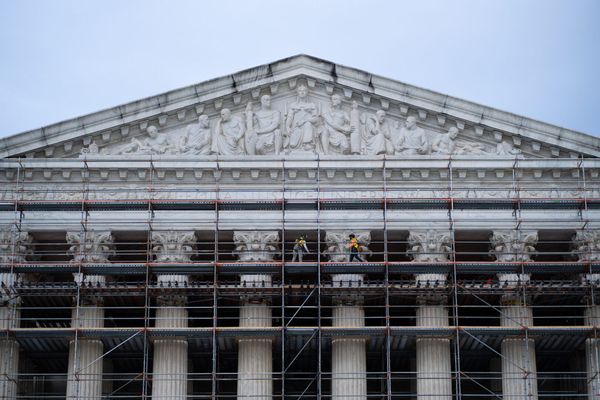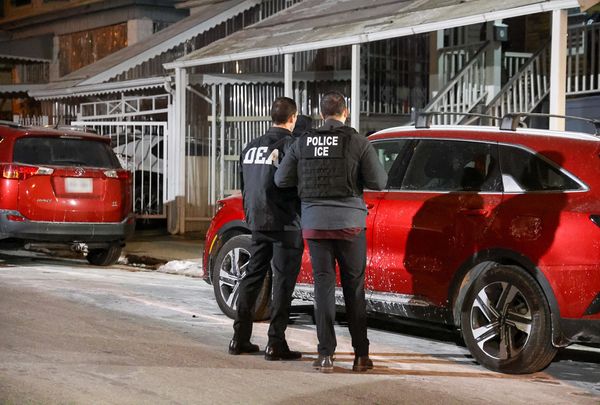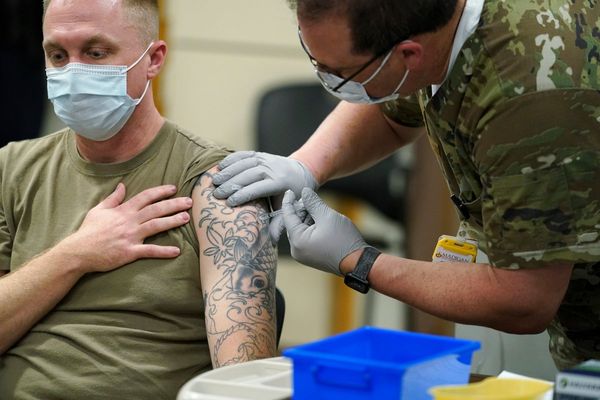
As the UK Foreign Secretary Lord David Cameron visits Gaza, the UN and the UK have jointly asked for a two-state solution to bring peace to the region.
Since the Israel-Hamas war began after the October 7 Hamas attack on Israel, talks about Palestine state have been gaining momentum and Britain has repeatedly pushed for it as seen in previous foreign secretary James Cleverly's statements.
Now, Lord David Cameron has started his Middle East tour by pledging long-term support for a two-state solution despite Netanyahu's rejection of recognising the Palestine nation.
Meanwhile, UN Secretary-General Antonio Guterres echoed the same sentiments on Tuesday (January 23) when he said denying Palestinian statehood would further extend the Gaza crisis.
This comes at a time amidst talks of renewal of the Israel-Saudi deal if the formation of the Palestinian state is included in it.
Last week Israeli Prime Minister Benjamin Netanyahu rejected the independent Palestinian statehood plea saying that Israel needs full security control of Palestinian territories. The recent statements by Lord Cameron and the UN Secretary-General are a fallout of that.
Terming Israel's refusal to acknowledge Palestine as "unacceptable", UN Secretary-General Antonio Guterres said: "This refusal and the denial of the right to statehood to the Palestinian people would indefinitely prolong a conflict that has become a major threat to global peace and security."
Guterres further explained how this outcome "would exacerbate polarization and embolden extremists everywhere".
Meanwhile, UK Foreign Secretary David Cameron landed in Israel on Wednesday and visited the Israeli-occupied West Bank. Cameron is scheduled to visit Qatar and Turkey to accelerate talks on a "sustainable ceasefire" for the Gaza crisis.
The UK Foreign Office revealed earlier that Cameron will be meeting the Palestinian President Mahmoud Abbas to emphasise Britain's support for the two-state solution "so that Israelis and Palestinians can live side-by-side in peace".
Recently, the US, Israel's most trusted ally also voiced support for the two-state solution saying that there is no way to solve Israel's security challenges and rebuild Gaza without a Palestinian state creation.
Pressure is also mounting from other world leaders as echoed by an EU top diplomat who insisted on a two-state solution to end the Gaza war. The diplomat explained how Israel's war on Hamas isn't working as it isn't destroying the Palestinian group.
Calling for an immediate ceasefire, David Cameron said: "No one wants to see this conflict go on a moment longer than necessary. An immediate pause is now necessary to get aid in and hostages out. The situation is desperate."
The UK Foreign Secretary elaborated his plan for this Middle East visit is to chart a course "to move from that pause to a sustainable, permanent ceasefire without a return to hostilities".
"Such a plan would require Hamas to agree to the release of all hostages, Hamas to no longer be in charge of Gaza launching rocket attacks at Israel, and an agreement in place for the Palestinian Authority to return to Gaza to provide governance and services and, increasingly, security," said Cameron.
As per the UK Foreign Office, the former British Prime Minister will be pressing for opening up more cross points so that humanitarian aid can be supplied to Gaza. This included opening up the Israel port at Ashdod and Karem Abu Salem crossing for the safe passage of aid to replenish water, fuel and electricity to the Palestinians in Gaza.
UK increases humanitarian aid to Gaza
On January 25, Britain announced further humanitarian aid for Gaza revealing that the UK and Qatar will be working together to get more aid flown into the conflict zone. The first joint UK-Qatar consignment of 17 tonnes of family-sized tents has already been delivered on Thursday.
Earlier, Cameron revealed how the Gulf state previously brokered a deal that saw dozens freed in November saying: "It's vital we can get it [aid] into Gaza and crucially, once it's in Gaza, get it around Gaza."
The Foreign Office said that the Foreign Secretary will witness UK and Qatar humanitarian aid being loaded onto an Egypt-bound plane which would be taken to Gaza by road from there. The tents are designated to shelter the Palestinian people desperately in need of a roof over their heads as Palestinian families remain torn and displaced by the conflict amidst the cold winter.
Speaking about the aid announcement Foreign Secretary David Cameron said: "The scale of suffering in Gaza is unimaginable. More must be done, faster, to help people trapped in this desperate situation."
The former British PM underlined what Britain was doing as aid has been tripled for Gaza, and "cooperation with partners like Qatar is helping move life-saving aid and equipment over the border to those living in devastation".
Calling for more UN staff, Cameron said: "Our efforts will only make a difference if aid gets to those who need it most, which is why we need more access for UN staff. As I said to PM Netanyahu yesterday, far more trucks need to be able to enter Gaza and more crossings need to open."
"The UK has trebled its assistance and is continuing to work with partners like Qatar to provide life-saving aid and equipment. With reports of nine out of 10 people in Gaza living on less than a meal a day in northern Gaza, our focus must be on practical solutions to save lives," the foreign secretary added.
According to Britain, opening up the Ashdod port will allow the delivery of life-saving aid into Gaza which will further help the UK and its partners like Qatar to make a difference in the region if aid reaches people in need.
Earlier on January 24, Cameron said that the Israeli government must deal with the bottlenecks and ensure checking is done at a faster rate to allow Swift passage of the humanitarian aid.
At present the Foreign Secretary's Representative for Humanitarian Affairs in Occupied Palestinian Territories, Mark Bryson-Richardson is based in the region working on resolving issues related to Gaza Strip blockages for faster delivery of aid.
As per the Gaza Ministry of Health statistics, 25700 Palestinians have been killed in the Gaza crisis since the Israel-Hamas conflict started. The majority of these are women and children. Close to 2.3 million Palestinians have been displaced in this war.







